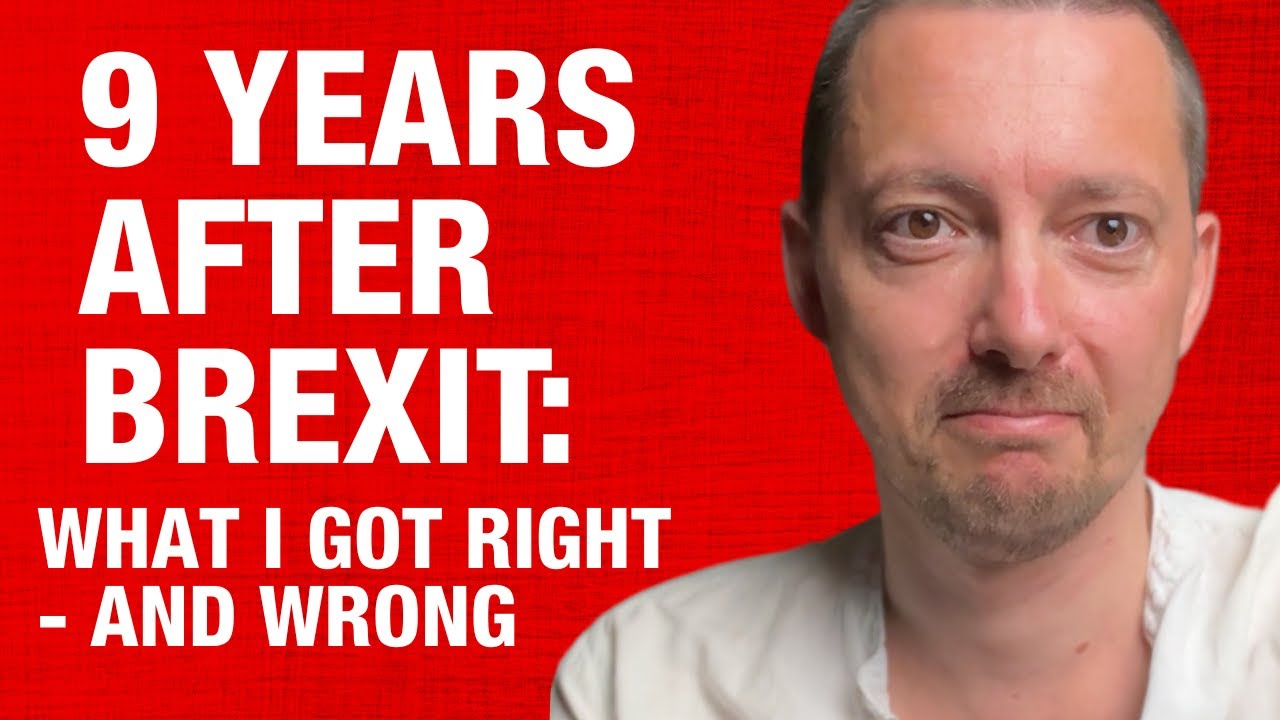The speaker sees Brexit as a symbolic early domino in a global decline of trust in institutions, highlighting interconnected political shifts like Trump’s rise and critiquing Labour’s failure to confront its past and adapt to modern challenges. They emphasize the importance of practical politics rooted in social cohesion and express skepticism about the EU’s future, foreseeing gradual decline rather than abrupt collapse amidst ongoing global instability.
The speaker reflects on the 9th anniversary of Brexit, emphasizing its significance as a symbolic domino in a broader global decline in trust towards institutions. They argue that Brexit, much like other political phenomena, cannot be understood in isolation, as it is part of a global wave of disillusionment and shifting societal identities. The speaker also highlights the interconnectedness of Trump’s rise, suggesting that American politics today cannot be fully comprehended without considering its global context, implying that U.S. political developments reflect broader international trends.
The discussion then shifts to a critique of the Labour Party’s historical relationship with its past, especially the Blair years. The speaker believes that Labour has failed to properly reckon with its history, particularly regarding the Iraq War and the neoliberal policies associated with the Third Way. This failure has resulted in a lack of clear direction and makes the current Labour leadership overly defensive and technocratic, disconnected from the societal changes and challenges they face, thus hampering meaningful political progress.
The speaker evaluates Jeremy Corbyn’s leadership and platform, suggesting that Corbyn’s approach was inherently incompatible with the modern political landscape linked to Brexit and largely unrealistic in today’s context. They describe Corbyn as lacking the necessary leadership skills and being disconnected from reality, speaking to a world that does not exist. The contrast between Corbyn and Bernie Sanders is also highlighted, emphasizing that Corbyn does not serve as a positive model of progressive politics, but rather as a symbol of delusion and unconstructive idealism.
Subsequently, the speaker discusses themes of societal consensus and political goals. They suggest that large-scale societies are inherently prone to disagreement over factual matters, which should not be controversial, drawing on philosophical insights. They emphasize that politics ultimately aims at practical improvements and stability—“keeping the show on the road”—rather than grand philosophical or ideological pursuits. The importance of balanced nationalism and solidarity within diverse populations is also underlined, warning against xenophobic nationalism and advocating for patriotic liberalism rooted in shared social bonds.
Finally, the speaker reflects on the future of the European Union in the context of Brexit and global instability. They acknowledge the EU’s continuing existence but express skepticism about its long-term viability, predicting that it may face gradual incapacity and legitimation issues rather than outright collapse. The potential decline of European integration is attributed to internal and external challenges, including the increasing difficulty of maintaining unified climate policies and cooperation without EU institutions providing essential infrastructure. The talk concludes with a sense of cautious realism, emphasizing the importance of understanding these complex, slow-moving changes rather than expecting abrupt transformations.
